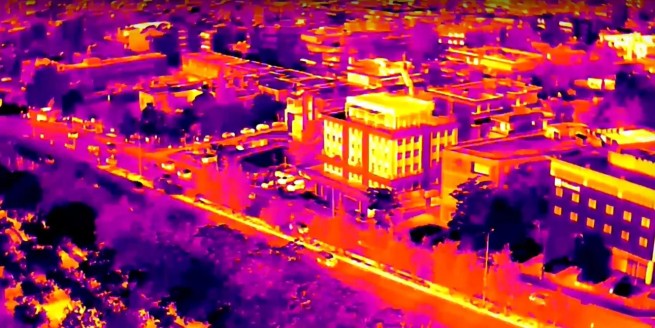According to meteorological data analyzed by the National Meteorological Service of Athens (meteo.gr), July 2024 was the hottest July on record, it was announced on Monday, August 5.

Greece has recorded three of the four hottest July months on record over the past four years.
Average temperatures in the Greek capital Athens could rise by more than 3.5 degrees Celsius in 2041-2070 compared to 1971-2000 due to the effects of climate change combined with the “urban heat island” phenomenon.
This is the conclusion of a study conducted at the University of Athens by Professor Konstantinos Kartalis, a member of the Scientific Committee EU on climate change, based on the new worst-case scenario of the UN Intergovernmental Panel on Climate Change (IPCC) within the framework of the CLIMPACT 2 research project.
It is noted that a temperature increase of this magnitude would significantly increase the future thermal risk in Athens in 2041-2070, while even at present, the central areas of Athens and Piraeus and the surrounding regions pose a very high thermal hazard, while it is lower in the north-eastern and eastern areas of Athens. Speaking to state news agency amna.gr, Professor Kartalis said that Attica follows weather trends in the south-eastern Mediterranean and more globally, where there has been an increase in the frequency, intensity and duration of heat waves as a result of anthropogenic warming of the planet recorded over the past 150 years.

ImagesThe images captured by a drone with a thermal imaging camera over Athens during the height of the heat wave are stunning.
He noted that the heatwave in Attica in 2022 and 2023 is indicative of these trends, combining high temperatures with a long duration, which worsened thermal conditions in many urban areas. Kartalis said that cities are more vulnerable to climate change as they also experience the urban heat island phenomenon, created by less vegetation cover, greater absorption of solar radiation and additional human-generated heat sources (cars, industry, buildings). This phenomenon is more pronounced at night, when urban areas cool down more slowly than rural areas. Kartalis also noted the impact of high temperatures on electricity demand: studies have shown that electricity consumption in Athens increases by 4.1% for every additional degree Celsius, and high and extreme temperatures increase mortality among people over 65 by 20% and 35%, respectively.

The map above shows the heat risk in Athens using five heat risk categories, from very low (green) to high (red) and extremely high (purple). The projected temperature increase of 3.5 degrees Celsius between 2041 and 2070 is based on the worst-case assumption that there is no reduction in fossil fuel use and no further greenhouse gas emissions.
P.S. Note to the Ministry of Climate Crisis: If you burn those pathetic remains of forests around Athens, the temperature will rise by another couple of degrees.







More Stories
"Ig Nobel" 2024 Prize: Drunk Worms, Anal Breathing, Coin Tossing
The oldest map of the world has been deciphered – it is a Babylonian inscription almost 3000 years old
Basic information for parents about the Greek school